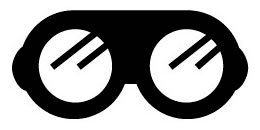In the packed back-room of Asgard’s Irish Pub in Cambridge, a diverse crowd of 25+ enthusiasts gathered to discuss the next big thing in biology: amateurs. Mackenzie (Mac) Cowell led-off the night with an overview of recent history in biological engineering, and asked the question: Can molecular biology or biotechnology be a hobby? Will advancements in synthetic biology be the tipping point that enables DIYers and garagistas to make meaningful contributions to the biological sciences, outside of traditional institutions? Can DIYbio.org be the Homebrew Computer Club of biology?
Noting that he was a recent expatriate from the institutional setting himself, Mac wondered out loud whether he would ever again be able to wield a pipette. A proliferation of projects and protocols available online make his prospects, and the prospects of the 25 or so individuals attending the first DIYbio meeting, quite good.
Over the noisy background of Thursday night pub chatter, just a few blocks from MIT, attendees around the room took a few moments to introduce themselves and their interests. “I’ve been a software engineer my whole life and I’m looking for something new,” said one attendee, who was accompanied by his enthusiastic teenage son. Also present were a dozen or so graduate students, several software engineers, journalist and her boyfriend, and even a few professors from Harvard and MIT.
Mac flipped through slides indicating that “backyard biology” is alive and well. One illustrated guide found online describes how to isolate DNA using chemicals found in every kitchen cupboard. Need more DNA? A $10 PCR device assembled from basic parts might do the trick. And a recipe from the pages of MAKE magazine provides the know-how for armchair anthropologists to combine a few legos, a source of current, and a cheap enzyme kit to generate DNA fingerprints.
While backyard biology promises to be an avenue for individuals to flex their intellectual muscles and explore the molecular world around them, Jason Bobe argued that the possible impacts of a DIY world go well beyond that. Amateurs and hobbyists are making significant contributions to engineering, environmental sensing, and even medical devices.
A ham-radio hacker, turned reluctant cancer patient, recently combined his expertise about radio waves with spare parts from his home to build a prototype device capable of targeting the destruction of cancer cells. This device is undergoing clinical trials at two major medical research centers, after attracting investments from venture capitalists and the collaboration of a Nobel Laureate who was intrigued by preliminary results generated from the DIYers garage.
Undergraduate participants of iGEM are increasingly capable of engineering biological systems that have the potential to do real work in the world. Banana-scented E. coli might be fun, but arsenic sensing bacteria for identifying contaminated water supplies might actually save lives. If undergraduates are able to design these systems, who else might?
Model organisms like E. coli are still frustratingly difficult to engineer, even for professional biologists. “If amateurs can help make biological engineering more reliable, I certainly would find that of value,” a graduate student remarked, half-jokingly. “I would think that amateurs would prefer to experiment with organisms that can be more readily inspected without expensive instruments,” said another. “Forget E. coli. They’re too microscopic. How about a plant, like moss?”
Jason cautioned that not everyone is ready to embrace a DIY biotech culture. In NYC, a proposal is currently under review that would make possession of environmental sensing devices a potential criminal offense. Tom Knight, an MIT professor and open source biology advocate, reminded the crowd of the recent attempt to prosecute artist Steve Kurtz for his home biology projects. “Is biological engineering fundamentally more dangerous than the risks posed by other fields, such as mechanical engineering?” asked John Cumbers, a graduate student at Brown University.
Mac proposed organizing a Boston-based bio-workshop for sharing equipment, space, and other resources. He flashed a few screenshots of Techshop, a west coast organization that has established nine shared workspaces for amateur technologists. “This same model could work for biotechnology hobbyists,” he added.
-Jason Bobe
Report from the 1st DIYbio.org meet-up
Thursday May 1st, 2008
Asgard’s Pub (Cambridge, MA)









What’s the deal with this month’s meeting? Is it happening tonight (Thursday, June 5) or no? 7-7:30 Asgard’s?
I glad reading your article. Thank you so much for share nice information.
Wonderful website, I actually discovered it to be interesting. I am looking forward to returning once more to determine what’s fresh.